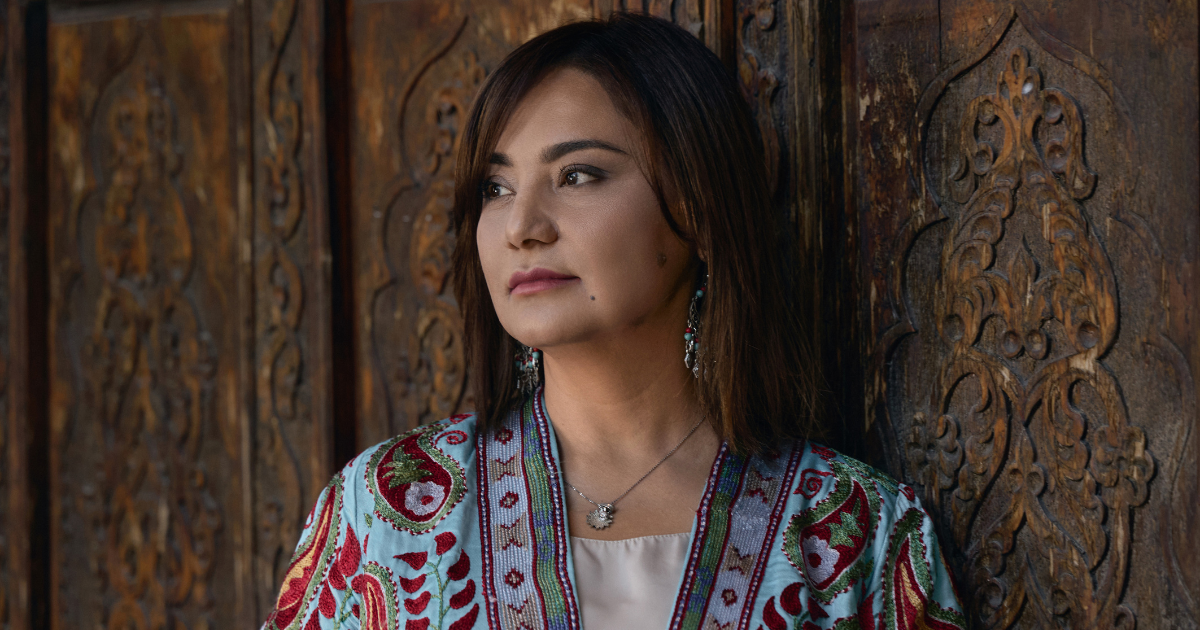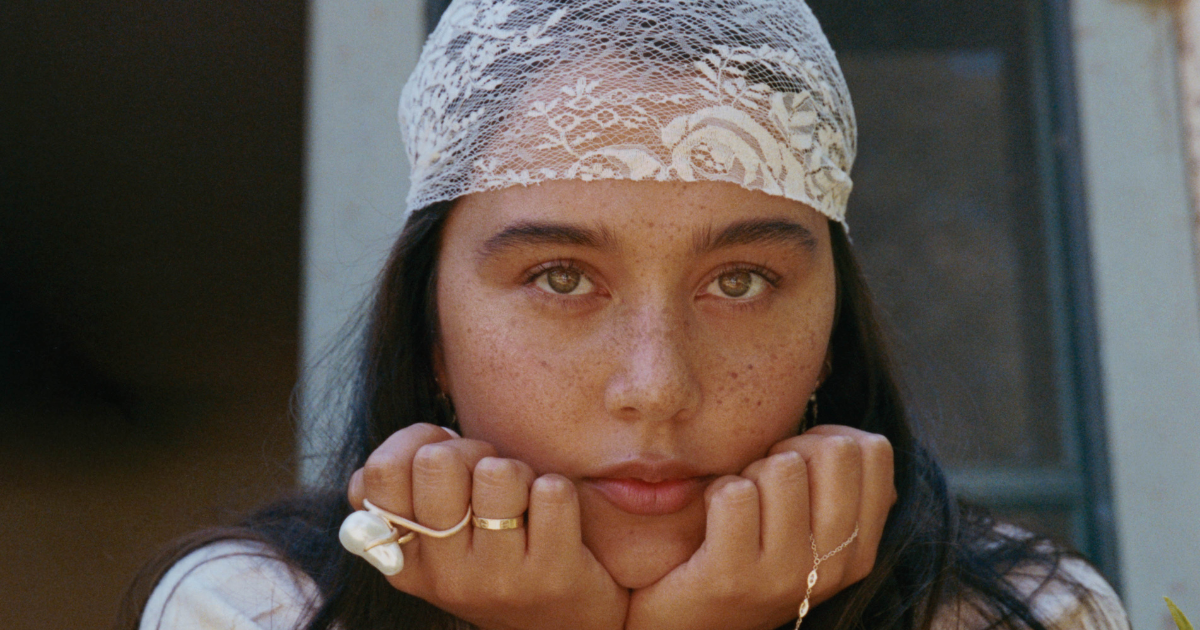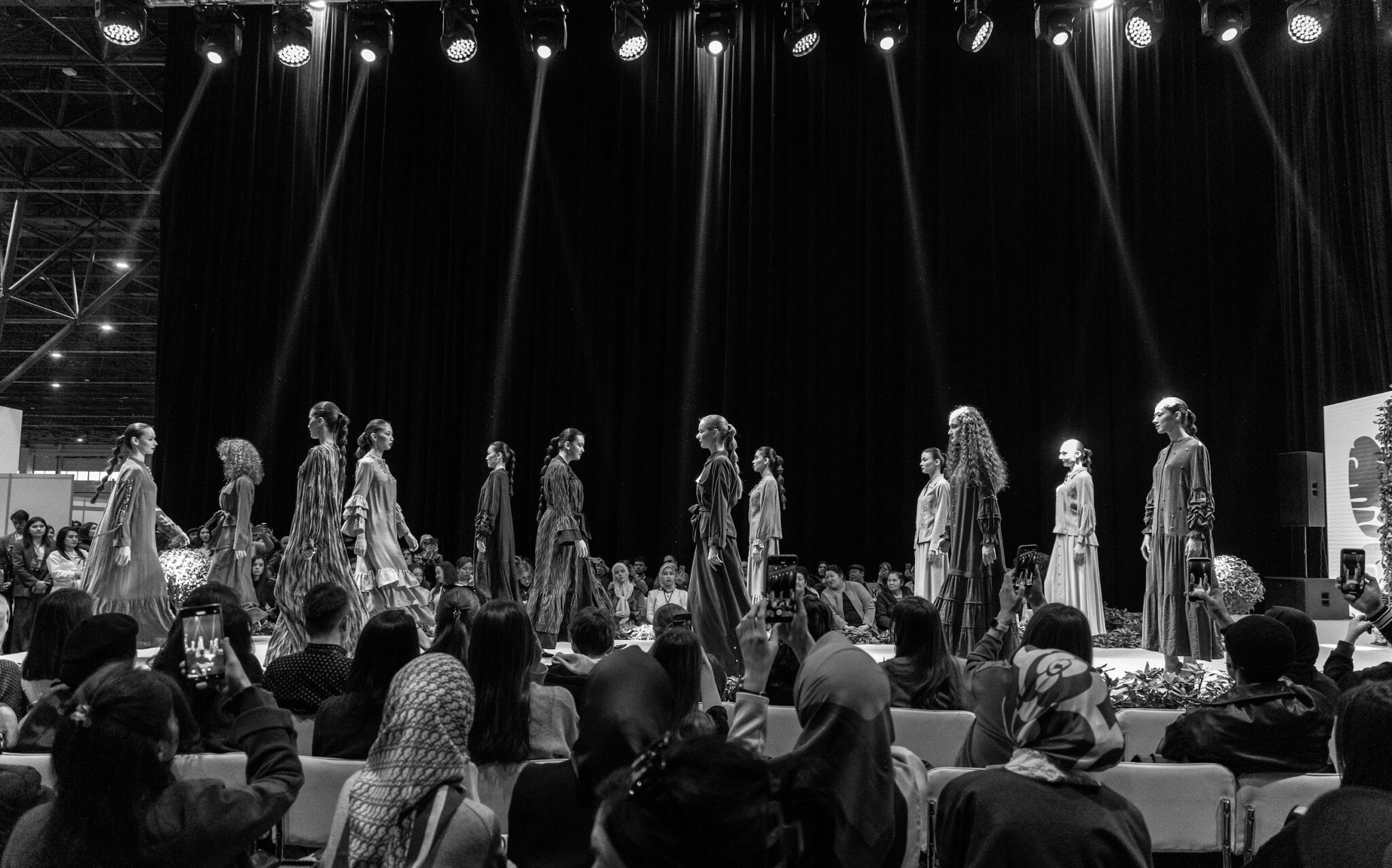80 years of hope: a journey to the roots
The Korean soul in the Uzbek heart of Rosa Grigoryevna Lee
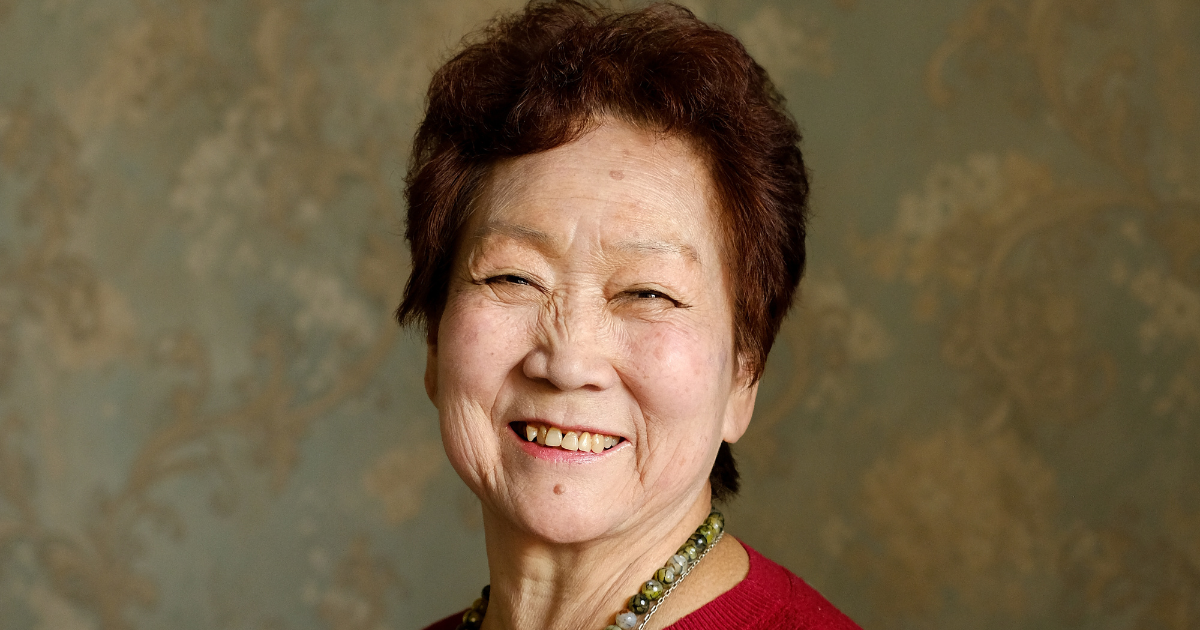
Sometimes, roots are not just a part of one’s biography, but a delicate, almost invisible thread that connects us to the past and gives us strength in the present.
The heroine of this story is 80-year-old Rosa Grigoryevna Lee, who was born and raised in Uzbekistan. Behind her is a life full of love, labor, and the quiet of dreams – dreams of one day learning more about the family that once remained on the other side of the border. For the first time, she shares her personal story, about a lost homeland, letters burned at dawn, and a hope that hasn’t faded, even after many years.
Having dedicated decades of her life to working as a nurse at a local clinic, she still speaks about her beloved work with a sparkle in her voice: “I would happily keep working, but my family won’t let me,” she smiles.
Despite her age, Rosa Grigoryevna radiates a remarkable calm and inner strength. Her energy is like a quiet light that doesn’t dim with the years. Her life has been not only about caring for others, but also about caring for herself – gently, thoughtfully, consciously. One of those personal choices is yoga, which she has been practicing for over thirty years.
ELLE: How did you begin practicing yoga?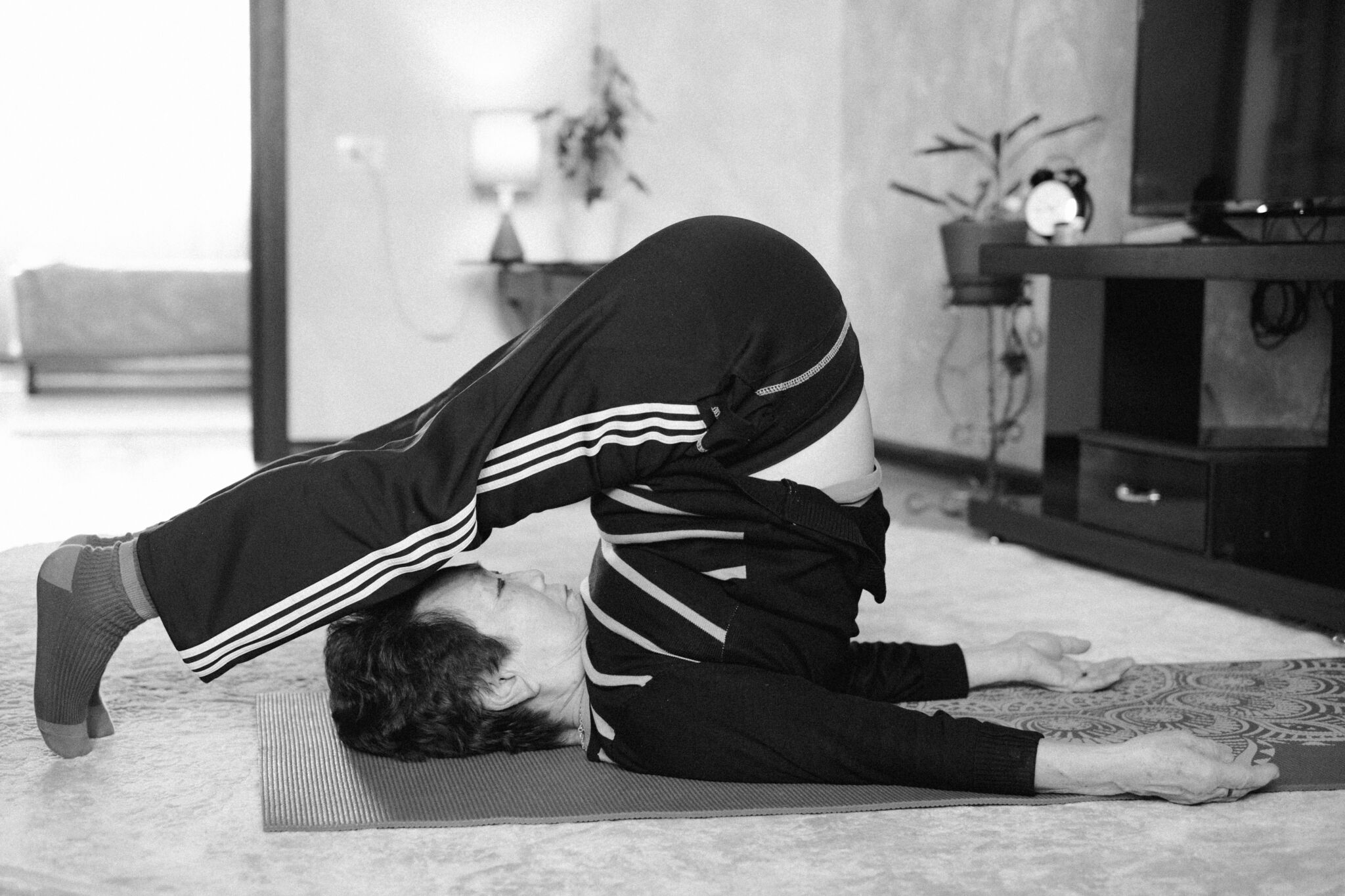
I came to yoga at the age of 47 – I started feeling unwell and didn’t want to treat myself with medications. I’m trained in medicine, I understand how pharmacology works, and I was looking for a more natural way to help myself. I studied callanetics, but it wasn’t enough. And then my husband randomly brought home a book titled ‘Yoga for You’ and said, “Try it.”
At first, I was skeptical, but then I started reading and became fascinated. The book had a lot of theory – about the body, the soul, about life – and all of it resonated with me. Yoga teaches responsibility, kindness, the ability not to judge, and working on oneself, not just physically, but spiritually.
I chose the asanas that suited me and practiced every day for 20 years. Now I continue to practice every other day — it’s already a part of my life. Yoga gives me not only strength and health but also emotional balance. It cultivates inner discipline, purifies the body and mind. It’s a path that requires effort, but gives back so much in return.
ELLE: You’ve been making your own cream for 30 years now. Can you tell us about the origins of the recipe?
When I worked in physiotherapy, they brought me a child with cerebral palsy for treatment. I really wanted to at least slightly ease his condition – to help him feel like a normal person. In my search for ways to help, I came across the recipes of the Bulgarian healer Vanga. One of them was for a cream that helped with bruises, burns, and other illnesses.
I made this cream and began using it in therapy. Over time, the child’s condition improved – he became more aware, more active, and even behaved differently at home. Later, others tried the cream – some for burns, some for cracked heels, and the feedback was always positive. That’s how it began: people started asking for it again and again.
The ingredients are completely natural: only high-quality olive oil and essential oils. The cream is now over 30 years old, and people still buy it in bulk – because it really works. 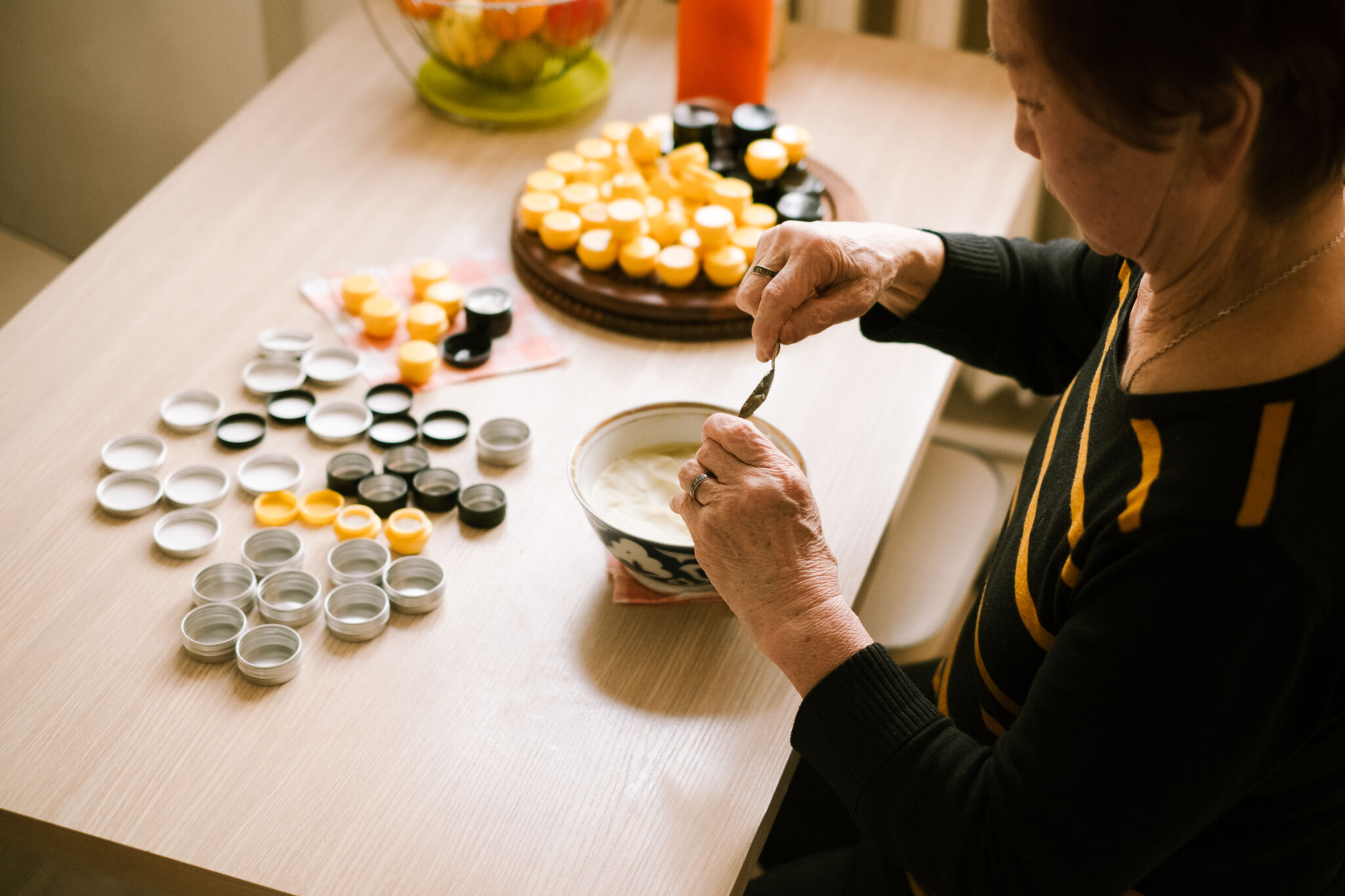
ELLE: Tell us a bit about your childhood – where did you grow up? What memories are linked with your sense of home?
I was born in Urgench. My father was a university professor, and since there was a shortage of teachers back then, he was often sent to different cities. After Urgench, our family settled in Nukus. That city became the backdrop of my most important milestones: education, my first job, marriage, children, and later grandchildren. Nukus became my home – a place tied to all the meaningful events in my life. People may say it’s not the capital and it’s far away, but to me, it’s closer than any other city. It holds a special place in my life.
ELLE: At what point did you begin to feel a strong pull toward your roots?
You know, that thought was always within me. My father missed his relatives terribly. Back then, many people migrated from North Korea – some to Uzbekistan, some to Russia, and those who were lucky ended up in South Korea.
My father accompanied his family – his mother had already passed away, but he had two brothers and a sister. He managed to help them cross the border. But when he tried to cross himself, he got stopped.
It was a difficult time. You couldn’t really call it an arrest – they simply told him, “You’ll stay with us. We need people. You will serve the cause.” He was a very honest, decent man, so he didn’t resist. So he served for two years. After he was released, he settled in Khabarovsk. That’s where he married my mother. She gave birth to five children.
Now, besides me, no one else is alive. Imagine how many years have passed. Sometimes I’m amazed myself – I never thought I’d live to be eighty.
ELLE: It means that he shared this story with you?
Yes, he told me, and I remember some things from my childhood. I was around ten when he was suddenly called for – it was about four in the morning. At that time, correspondence with relatives abroad was forbidden, but he was still in contact with his brothers and sister.
After two hours of questioning, they told him, “When you return home, destroy all the letters and addresses you have.” And he had an entire suitcase full of letters. And being the honest man he was, he decided to comply.
I remember he returned home around six in the morning and began lighting a fire. I was extremely curious – I’ve always been very observant, and I didn’t understand what he was doing. And there he was, silently burning all those letters, all traces of contact with his family…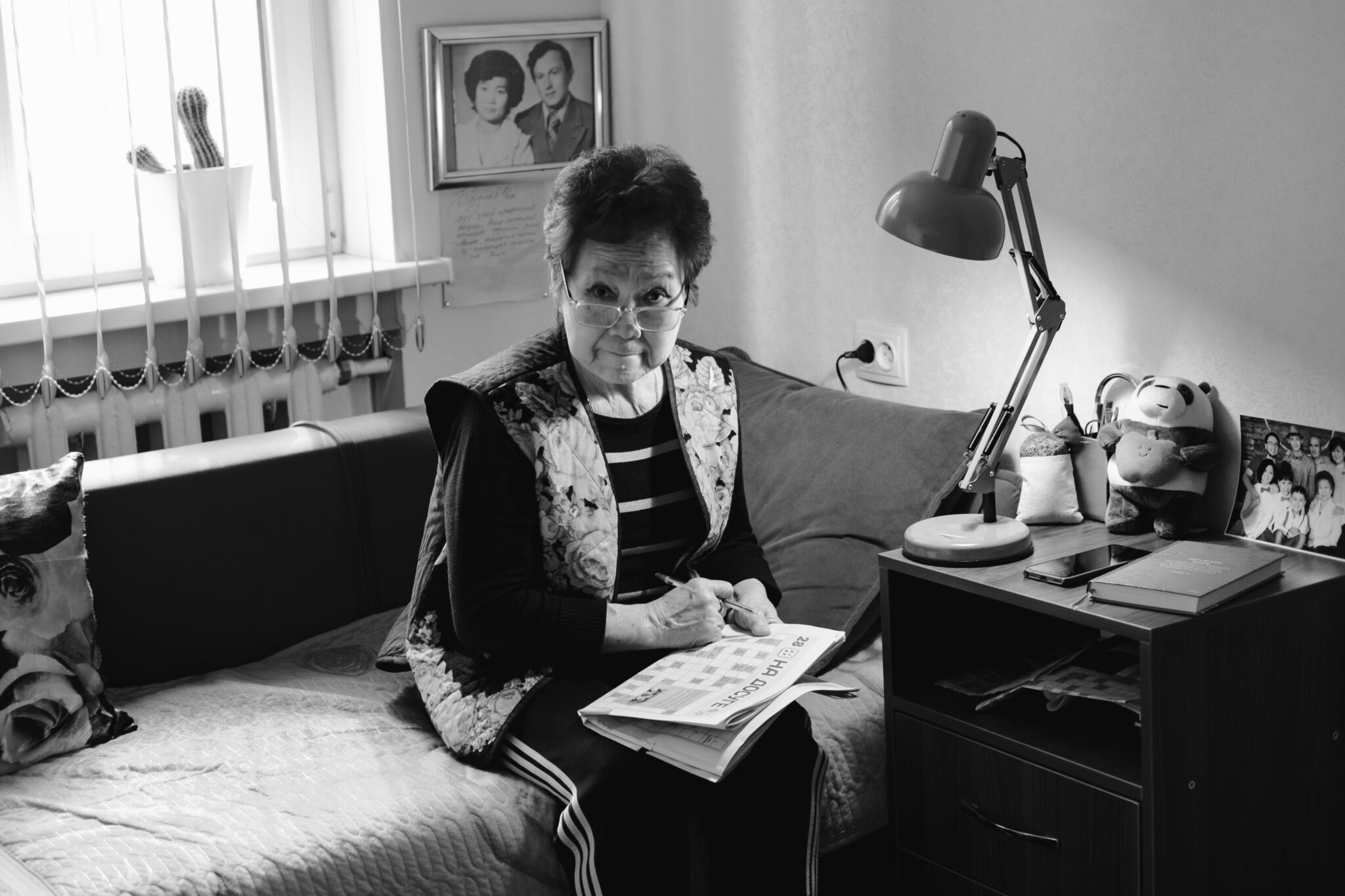
I ran outside and asked, “Papa, what are you doing?” And he quietly replied, “I’ll explain later… Go back inside.” His eyes were full of tears, but he continued silently burning the letters. He burned everything – the addresses, the memories, the hope.
That’s why we don’t even know the names of his relatives. But he always dreamed of finding them again. That longing for his family never left him.
And for some reason, he always said to me, “It’ll probably be you who goes to Seoul one day.”
I would ask, “Me? What would I do there?”
And he’d answer, “That’s where your family is…”
But he left us nothing, no names, no addresses. And the worst thing happened after his death: his diary, which he had kept all his life, was buried with him. And with it, everything disappeared. We lost the last thread that could have connected us to his family.
Where the beginning is, where the end is – everything is lost.
At some point, I asked a pastor from a Protestant church if they could help trace my roots. He said, “Absolutely, just give us the names.” But unfortunately, we don’t have accurate information. Recently, my granddaughter became interested in the family’s history too – her children and those of my other kids live in South Korea – and she decided to take up the search. So far, we’ve only managed to find a birth certificate that had been reissued in Kungrad – it lists a name, surname, and the names of the parents. Of course, now only the grandchildren are left, and young people rarely have a true interest in family history… So sometimes something turns up, and other times, everything just comes to a dead end.
Photo: Nadejda Pak
